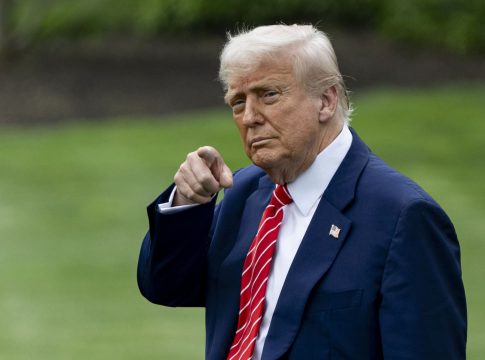Wall Street Reacts to Proposed "Revenge Tax" in Trump’s Spending Package
As Congress deliberates on President Donald Trump’s multi-trillion-dollar spending package, a controversial provision, known as Section 899, is stirring significant buzz—and concern—among Wall Street investors. This provision could impose a new tax of up to 20% on foreign investors and multinational companies operating in the U.S., potentially reshaping the landscape of international investment.
Understanding Section 899: What’s at Stake?
The Basics
Section 899 is often labeled a "revenge tax." This term stems from its intent to penalize foreign companies whose home countries implement "unfair foreign taxes" on U.S. firms. According to analysts, if this provision becomes law, it could have far-reaching consequences for asset management and investment strategies across the globe.
Potential Financial Impact
Experts warn that if enacted, taxes on passive investment income could soar, potentially reaching as high as 50% in some instances. Such a significant tax hike could deter foreign investments in the U.S. and impact the operations of hedge funds, private equity, and other financial entities, according to Ernst & Young’s analysis.
Key Provisions of the Tax
-
Annual Increments: The proposed tax could rise by 5% each year, up to a maximum of 20%.
-
Types of Taxes Targeted: The provision aims at a variety of foreign taxes deemed "unfair," such as digital services taxes and those related to the global minimum tax discussed by President Biden’s administration.
- Expanded Anti-Abuse Protections: It also enhances existing regulations designed to prevent corporations from exporting profits to dodge taxes.
Wall Street’s Reaction: Alarm and Uncertainty
Market analysts, including James Lucier of Capital Alpha Partners, express surprise and concern over this provision. Many are uncertain about how it might affect investment flow and the overall economy. By targeting foreign businesses, there’s a risk that U.S. investors may also face retaliation from other countries, potentially escalating into a broader economic fallout.
Support and Opposition in Congress
Despite the pushback from the financial sector, some lawmakers view Section 899 as a critical priority. House Republicans support it as a means of encouraging foreign nations to reform their tax policies. They believe successful implementation could raise an estimated $116 billion over the next decade, a significant sum that could fund various governmental initiatives.
Chairman Jason Smith of the House Ways and Means Committee has been vocal about this measure, emphasizing the aim to adjust international tax behaviors rather than simply generating revenue.
What Investors Need to Consider
For investors, the implications are clear: Section 899 could change the game for how foreign investments are structured and taxed in the U.S. Staying informed about these developments is crucial, as the final form of the legislation may still evolve.
In Summary:
- Watch the Developments: Keep an eye on how the Senate addresses this provision; changes could occur as discussions continue.
- Review Investments: If you have investments linked to foreign entities, it might be wise to reassess their structure and potential vulnerability to new taxes.
- Be Prepared for Change: This proposed tax could ripple through various sectors, affecting stock valuations and investment strategies in the process.
As always, staying informed is your best weapon against unexpected financial shifts.

Writes about personal finance, side hustles, gadgets, and tech innovation.
Bio: Priya specializes in making complex financial and tech topics easy to digest, with experience in fintech and consumer reviews.

